Window shades are a popular sort of window treatment that is made of cloth and moves up and down with the help of a rope or lifting mechanism. Unlike blinds, which have slats that move open and closed to control the light, shades are fashioned from a single piece of material. The majority of rooms could use a little more privacy, and window coverings are an excellent way to enclose your area while adding a dash of design.
Window shades are a straightforward way to add a splash of colour, texture, and pattern to your home without taking up any floor space, in addition to serving the traditional purposes of filtering off the light and granting privacy (and without breaking your budget). Learn about typical window shade types in the sections below to help you select the best selection for your room.
Pros and cons of window shades
Pros
- Simple to install and use: Because no specific procedure is needed to cover and uncover the windows, window shades are simple to operate. These can be utilised in children’s rooms because they are simple to operate and manage. One option is to use an automatic curtain with a button that can be clicked to close and open it. Additionally, installing shades is simple and may be done anywhere, including your house or place of business.
- Keeps privacy: Unlike conventional drapes, window shades are less likely to obtrude privacy by dancing in various directions when a gust of wind strikes them. Even when the fan is set at its highest speed, window shades remain stable and sturdy.
- Classy: By adding these stylish shades, which may be constructed of a variety of materials, including bamboo stems, textiles, PVC, and wood, one can instantly improve the appearance of their room.
Cons
Cleaning window shades is difficult since each one must be cleaned individually, which takes extra work. While washing a washing machine is necessary, washing traditional curtains is simple.
Some window shade options for your home
Roller shades
The simplest sort of window shade is a roller shade, which fits inside the window casement and rolls up and down using a pulley-like system (usually with a cord). With regular use, these shades ought to survive for many years due to their usual durability.
Affordable white plastic roller shades are readily available at any home improvement store. More costly roller shades frequently incorporate a cordless raising mechanism. In addition to plastic, a variety of fashionable materials, such as bamboo, burlap, and a wide range of textiles or colour choices, can be used to create roller blinds.

Source: Pinterest
Balloon shades
The cables for balloon shades pass through rings on the back of the shade. The shade’s fabric gathers into cascades of billowy pouffes as it is drawn open, giving the window treatment a romantic, official, and slightly vintage image. From the thinnest textiles up to lined, hefty materials that completely block out light, you can discover balloon shades. But typically, translucent or silky materials that drape softly and readily are used to create balloon shades (which should be handled gently to prevent damage).
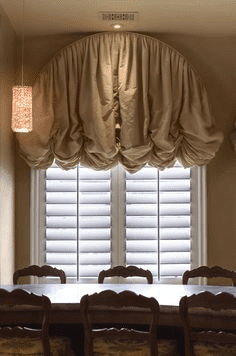
Source: Pinterest
Roman shades
Roman shades, which resemble a cross between a balloon and roller shades, hang flat while closed but pull up into deep, horizontal pleats when raised with the cord that is attached. Roman shades are often constructed of sturdy cloth to achieve crisp pleats. However, bamboo is a popular alternative. They come in a wide variety of shades and designs. Roman shades are a terrific option for bedroom window treatments as well because of how well they block sunlight, thanks to their thick fabric.
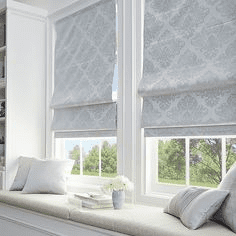
Source: Pinterest
see also about: Wooden window
Honeycomb shades
If you want to save some energy in your home, you can choose honeycomb shades. By trapping heat or cold air behind the glass and making the room warmer or colder, these shades are intended to assist you in maintaining your desired room temperature during both summer and winter.
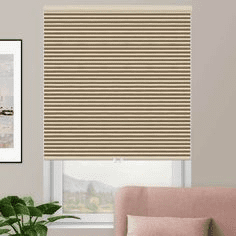
Source: Pinterest
see also about: window aluminium
Bamboo-made or woven shades
The following option on our list is bamboo-made or woven shades. Although they are rather pricey in comparison to other possibilities, these kinds of shades are great for African or Asian themes. Woven hues, on the other hand, lean more toward the neutral side and can be employed for a chic appearance.

Source: Pinterest
Sun-defying shades for any room
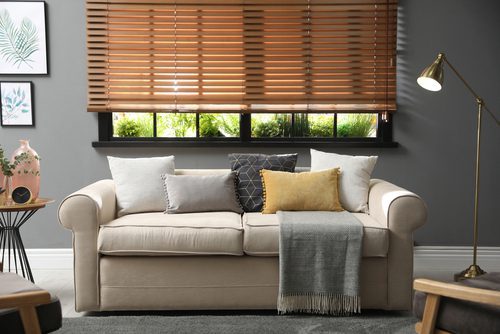

Stylish window shades for sun protection
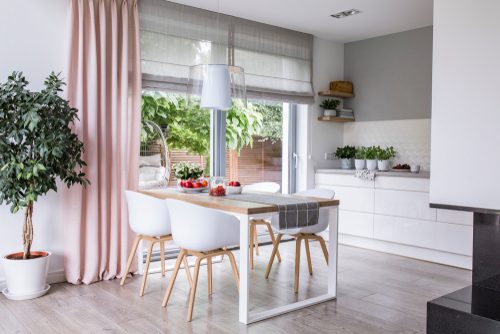
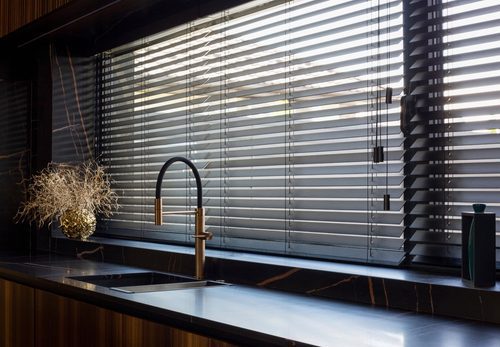
Custom shades to match any décor
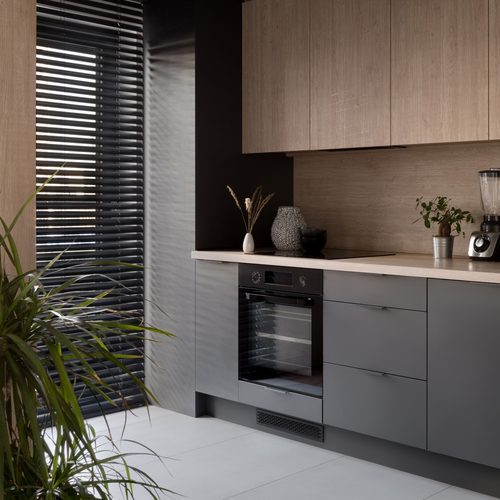
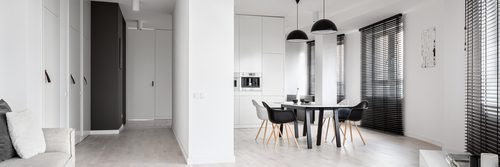
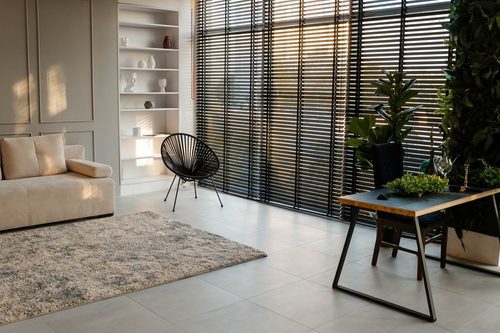
FAQs
What distinguishes blinds from shades?
The quick explanation is that shades are a single solid window treatment made of softer materials, whereas blinds are structured window treatments with slats that may be tilted open or closed. Blinds are often made of wood, woven wood, bamboo, imitation wood, aluminium, and vinyl and can be horizontal or vertical.
Why are shades called soft window treatments?
Since shades don't have slats or vanes and provide a smooth appearance for your windows, they are referred to as soft window coverings because of the fabric's warm, flowing feel. While light filtering cannot be altered, as with blinds, you can select various levels of opacity to suit your preferences.






